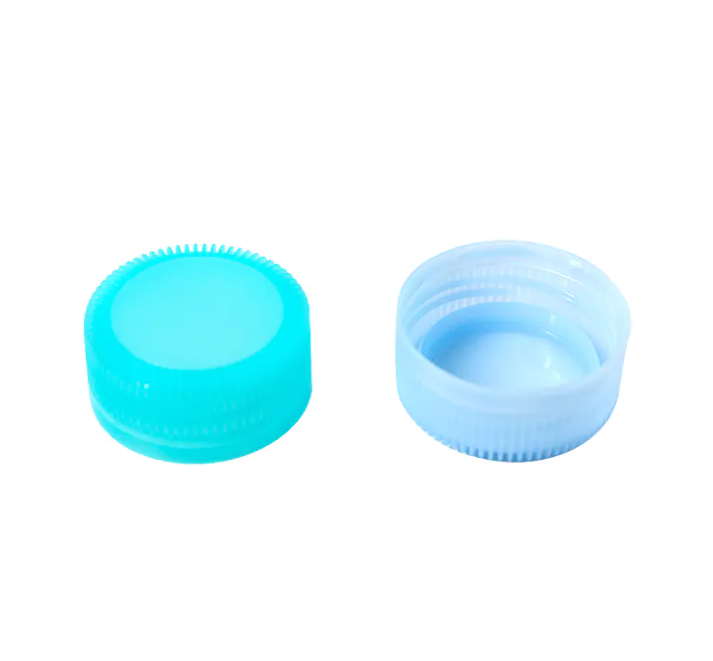chuangzhen@capping-machine.net

EN
In today’s manufacturing landscape, sustainability has emerged as a key driver of technological advancement. The Cap Compression Machine plays a crucial role in this transformation by efficiently producing plastic bottle caps using sustainable materials such as bioplastics and recycled resins. As industries strive to balance performance with environmental responsibility, innovations in compression molding technology help manufacturers reduce waste, energy consumption, and overall environmental impact, while maintaining the quality and durability expected by consumers.
Global efforts to reduce plastic pollution and carbon emissions have accelerated the shift toward sustainable materials in cap production. Traditional petroleum-based polymers, while reliable and cost-effective, contribute to long-term waste and environmental degradation. In contrast, bioplastics derived from renewable resources like corn starch, sugarcane, or cellulose offer lower carbon footprints and enhanced biodegradability. Compression molding is particularly well-suited for these materials because it operates at lower temperatures and pressures compared with injection molding, minimizing material degradation and energy use. This process not only strengthens the environmental benefits of sustainable materials but also ensures consistent product quality.
Recycled resins have also gained considerable attention in recent years. By incorporating post-consumer recycled (PCR) or post-industrial recycled (PIR) materials into bottle cap production, manufacturers can significantly reduce reliance on virgin plastics. However, the mechanical properties of recycled materials can vary, presenting challenges in processing and product performance. Advanced compression molding systems address these challenges through precise temperature control, optimized material distribution, and adaptive pressure management, maintaining uniformity and strength even when material composition fluctuates. This ensures reliable performance in demanding applications such as beverage, cosmetic, and pharmaceutical packaging.
The versatility of modern compression machines makes them ideal for sustainable manufacturing. Manufacturers can switch seamlessly between bioplastics, recycled resins, or hybrid materials without major equipment modifications. Digital monitoring and automated process adjustments allow operators to fine-tune parameters such as cycle time, torque, and cooling rate. This flexibility shortens setup times and supports experimentation with new material formulations, an important factor in the ongoing development of sustainable polymers.

Energy efficiency further enhances the environmental value of compression molding. The process inherently consumes less energy than traditional injection molding because it forms each cap directly from pre-measured pellets instead of melting and injecting molten plastic. Many modern machines feature servo-driven motors, energy recovery systems, and optimized cooling circuits, reducing power consumption. By combining sustainable materials with energy-efficient machinery, manufacturers can significantly decrease carbon emissions across the product lifecycle.
Another advantage of using bioplastics and recycled materials in cap compression is waste reduction during production. Unlike injection molding, which often generates excess material in runners and gates, compression molding uses nearly the exact amount of material required for each cap. Any small amount of scrap can often be reprocessed and reincorporated, further minimizing material waste and costs while maintaining high productivity.
Quality assurance remains a key focus as new materials are adopted. Advanced control systems, including closed-loop feedback and real-time data monitoring, help maintain precise production standards. Embedded sensors track pressure, temperature, and cycle consistency, ensuring each cap meets dimensional accuracy and sealing requirements. These intelligent systems maintain strict quality benchmarks even when processing more variable sustainable materials.
Collaboration between machinery manufacturers, material scientists, and packaging companies is accelerating innovation in this field. Research is ongoing to develop bioplastics with improved thermal stability, elasticity, and moisture resistance—qualities essential for bottle cap applications. Meanwhile, cap compression equipment continues to evolve, integrating smarter control algorithms and predictive maintenance functions to enhance reliability and adaptability. The synergy between equipment and material innovations is shaping a more sustainable future for plastic packaging manufacturing.
Taizhou Chuangzhen Machinery is at the forefront of this transformation, offering advanced compression molding solutions that efficiently utilize eco-friendly materials. By combining precision engineering with sustainable practices, it enables manufacturers to produce high-quality caps that meet performance requirements while supporting global environmental goals.
Copyright © Taizhou Chuangzhen Machinery Manufacturing Co., Ltd. All Rights Reserved.
